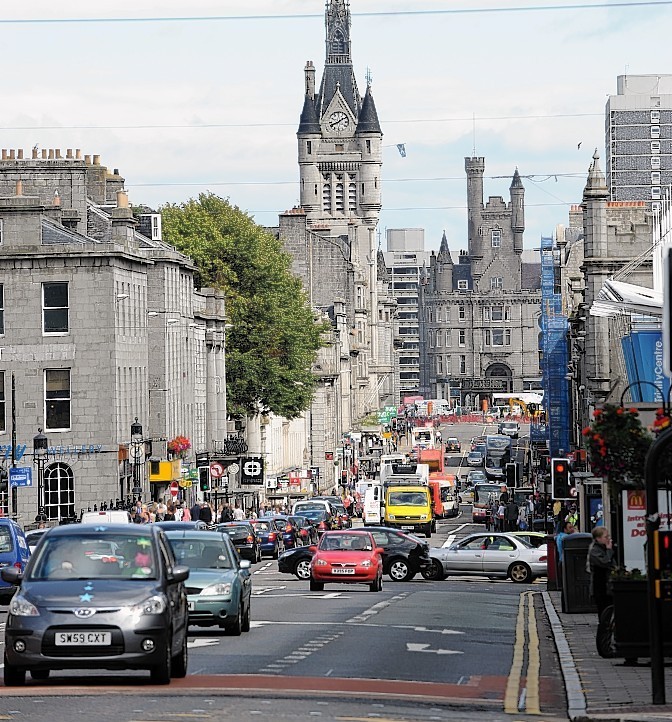Thousands of shoppers have had their movements tracked in Aberdeen city centre after their smartphones were accessed to pinpoint their whereabouts.
It comes after nine sensors were installed in Union Street to map people’s activity in the key shopping district.
Each sensor uses a wi-fi signal to access the shopper’s unique MAC address on their mobile device.
As the shopper moves around the city centre, the sensor will track the journey of the device.
The information is acquired without consent of the mobile phone owner with some concerns raised about the way the data is accessed.
But those behind the scheme insist there is no threat to privacy and that the identity of the shopper cannot be traced.
The data collection project is being run by retail analysts Springboard for Aberdeen Inspired, which is charged with increasing the numbers of those visiting the city centre.
Diane Wehrle, marketing and insights director at Springboard, said: “The data collected is completely confidential. The sensors will know when it entered the city centre, where it goes and when it leaves.
“Aberdeen Inspired will know how frequently the device comes back and where it goes in the city.”
She stressed that there was no information available as to who owned the mobile phone that had been tracked.
Ms Wehrle said: “We don’t have access to the registration details, we only have the MAC address. We don’t know who has that MAC address.
“We don’t link the data to an individual. People should not be worried or concerned.”
Roughly 50,000 people a week visited Union Street over the summer months, although a more detailed picture will build up over time using the data.
The sensors were fitted three months ago and are due to collect data until 2016.
The tracking systems have already been used in other shopping districts across the world, including Manhattan.
Similar schemes are already used in some supermarkets to monitor how people shop.
Aberdeen Inspired will built up an archive of data to show which parts of the city centre are used the most, and importantly highlight the least attractive areas for users.
Emma Carr, director of Big Brother Watch, said: “Shoppers will rightly be concerned to learn that their movements are being tracked in this way and it seems wholly wrong that the only way that they can currently opt out is by leaving their phone at home.
“This scheme highlights how technology has made tracking us much easier and, in the rush to generate data and revenue, there is not enough of a deterrent for people to stop and ensure that people are asked to give their consent before any data is collected. “
